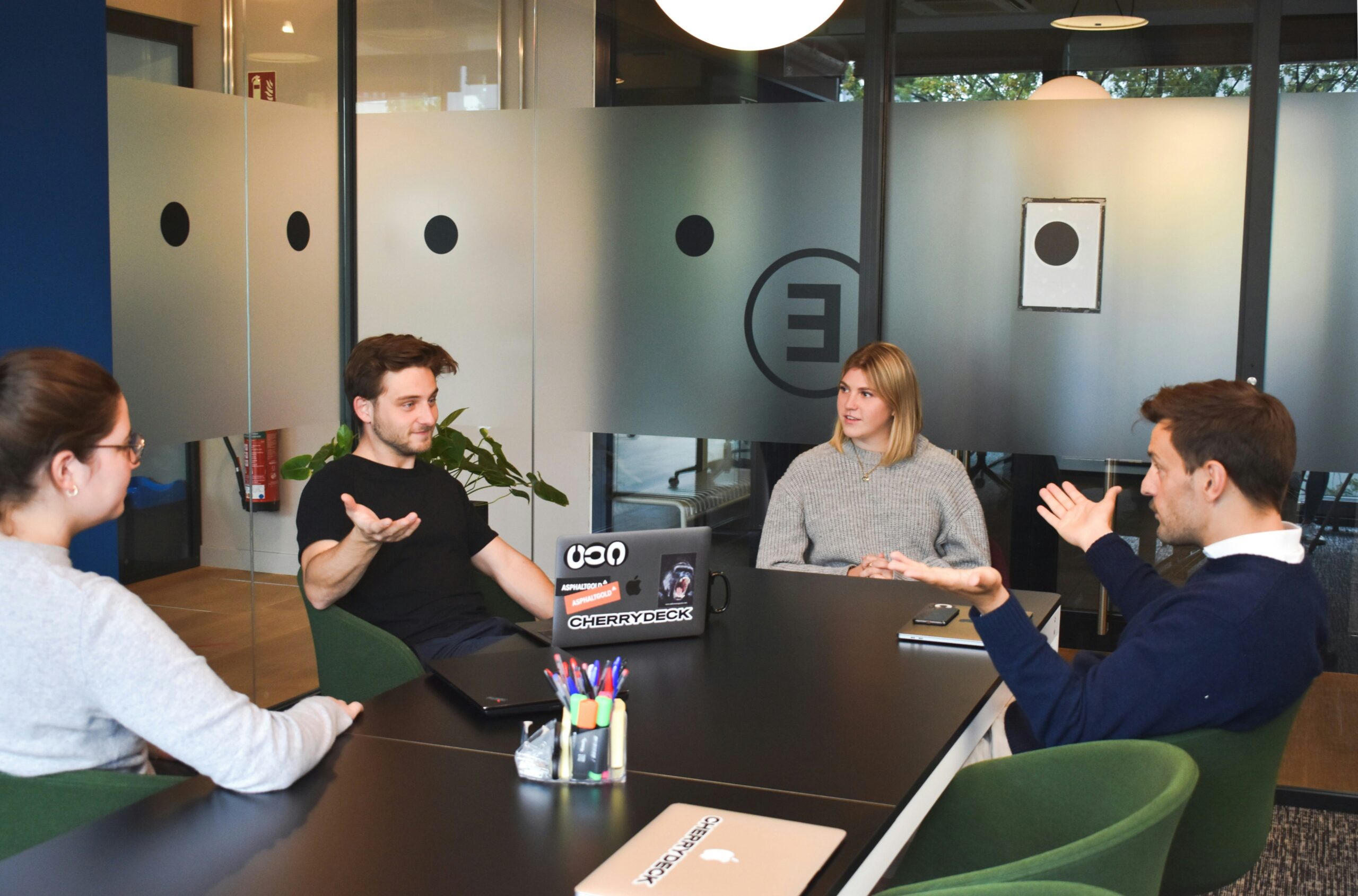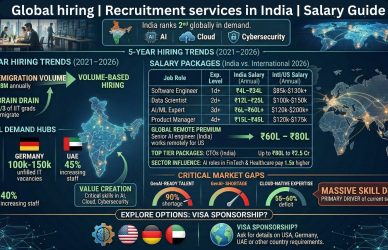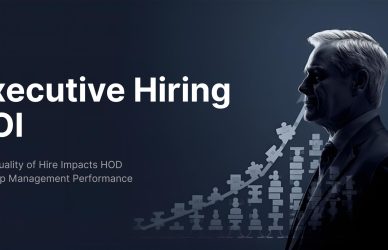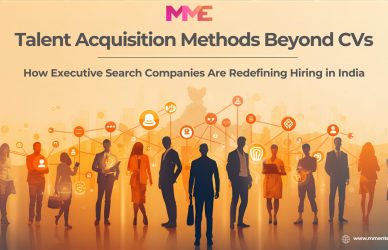Introduction: The Changing Landscape of PEO Services
Overview of PEO Services
Professional Employer Organization (PEO) services have emerged as a vital tool for businesses aiming to streamline workforce management. PEOs partner with companies by taking on various human resource functions, including payroll processing, benefits administration, compliance management, and employee training. This co-employment model allows businesses to focus on their core operations while the PEO handles complex HR tasks. The appeal of PEO services lies in their ability to reduce administrative burdens, lower HR costs, and ensure compliance with ever-evolving employment laws, making them a strategic asset for businesses of all sizes.
The Role of PEOs in Modern Workforce Management
In today’s fast-paced business environment, PEOs play a critical role in managing the diverse and often challenging needs of the modern workforce. As remote and hybrid work arrangements become more common, businesses face increased complexity in managing employee benefits, compliance, and payroll across different jurisdictions. PEOs help companies navigate these challenges, offering expertise and resources that ensure workforce management remains seamless and effective. By leveraging PEO services, companies can provide their employees with consistent support, benefits, and regulatory compliance, fostering a more stable and engaged workforce.
Examining the Evolution of PEOs in Today’s Business Landscape
As the global business landscape continues to shift, the role of PEOs has evolved to meet emerging demands. Companies are increasingly seeking scalable, flexible workforce solutions that can adapt to rapid changes, such as economic shifts, technological advancements, and regulatory updates. Analyzing the evolution of PEO services helps businesses understand how PEOs have adapted to these trends and how they are positioned to support future workforce needs. This examination is essential for companies aiming to stay competitive in a dynamic, globalized marketplace.

Understanding PEOs: A Brief History
Origins and Initial Purpose of PEOs in HR Solutions
The concept of Professional Employer Organizations (PEOs) began to take shape in the 1970s as companies sought ways to streamline and simplify their administrative processes, especially in human resources. Initially, PEOs were introduced to relieve businesses, particularly small and medium-sized enterprises (SMEs), of administrative tasks like payroll processing, compliance with employment laws, and employee benefits management. By co-employing workers, PEOs allowed businesses to reduce administrative burdens, ensuring they could focus more on growth and less on complex HR regulations. This service model quickly gained traction, as it provided a cost-effective solution for handling essential HR functions that many businesses lacked the expertise to manage efficiently on their own.
Key Milestones in the Development of PEOs
Since their inception, PEOs have undergone significant transformations. In the 1980s, the PEO industry saw a surge in popularity, with numerous providers entering the market to meet growing demand. This period marked the formalization of the co-employment model, where the PEO shares employment responsibilities with the client company, further defining the scope and legality of PEO services. Regulatory bodies and industry associations, such as the National Association of Professional Employer Organizations (NAPEO), were established in the late 1980s and 1990s to set standards and advocate for the industry, adding credibility to the PEO business model. The early 2000s brought a new wave of technology-driven solutions, enabling PEOs to automate key HR functions like payroll and compliance reporting, while offering robust, cloud-based systems that could handle the demands of an increasingly global workforce.
Shift from Administrative Support to Strategic HR Partnerships
Today, PEOs have evolved well beyond their original purpose as providers of administrative HR support. Recognizing the strategic potential of HR, PEOs now function as comprehensive partners, offering solutions that align with broader organizational goals. This shift is particularly relevant as companies face challenges in talent acquisition, employee engagement, and retention in a competitive labor market. Modern PEOs provide strategic guidance in areas like workforce planning, performance management, and employee development, transforming HR from a back-office function into a core component of business strategy. By leveraging data analytics, workforce insights, and regulatory expertise, PEOs support companies in making informed HR decisions that foster growth, agility, and resilience. This shift has redefined the role of PEOs, making them indispensable partners in navigating the complexities of today’s HR landscape.

Drivers of Change in PEO Services
Technological Advancements Influencing HR and PEOs
Technology has been one of the most powerful forces reshaping the PEO landscape, fundamentally altering how human resources are managed and delivered. Modern PEOs leverage advanced HR technologies, such as cloud-based platforms, artificial intelligence (AI), and data analytics, to enhance service efficiency, accuracy, and scalability. Cloud technology enables PEOs to provide centralized, real-time access to HR data for both clients and employees, allowing for seamless management of payroll, benefits, and compliance processes. AI and machine learning (ML) are also revolutionizing HR tasks, enabling PEOs to automate repetitive functions like payroll processing, employee onboarding, and leave management, resulting in significant time and cost savings.
Moreover, AI-driven insights help PEOs make data-informed decisions in talent management, such as predicting employee turnover or identifying high-potential employees. As HR becomes increasingly data-driven, PEOs are harnessing analytics to measure and improve employee engagement, satisfaction, and productivity. These advancements not only optimize administrative efficiency but also enable PEOs to offer value-added services that support strategic workforce planning and business growth, further enhancing their role as strategic HR partners.
Rising Demand for Global Workforce Solutions
The demand for global workforce solutions has surged as companies expand internationally and hire talent across borders. In response, PEOs have adapted their services to accommodate the complexities of managing a distributed workforce, including navigating different labor laws, cultural norms, and compliance requirements. This demand is driven by several factors, including the growth of remote work, the globalization of businesses, and the need for companies to tap into diverse talent pools around the world.
Global PEO services provide businesses with a viable solution for managing international HR functions, such as payroll, benefits, and legal compliance, without the need for a physical presence in each country. This capability is particularly beneficial for small and medium-sized enterprises that lack the resources to establish local entities in multiple countries. By offering comprehensive global HR support, PEOs enable businesses to expand their reach and access talent globally while minimizing risks and administrative burdens. This trend highlights the PEO industry’s evolution from local to global solutions providers, meeting the needs of a highly interconnected and mobile workforce.
Regulatory Shifts and Compliance Challenges Impacting PEO Operations
The PEO industry operates in a highly regulated environment, and staying compliant with constantly changing laws and regulations is critical for both PEOs and their clients. Compliance requirements vary widely by region and can encompass everything from payroll taxes to employee rights, benefits regulations, and workplace safety standards. In recent years, regulatory shifts have become more frequent and complex, driven by evolving labor laws, data privacy requirements (such as GDPR in Europe), and changes in healthcare and tax regulations.
These regulatory dynamics present significant challenges for PEOs, as non-compliance can lead to financial penalties and reputational damage. To address these challenges, PEOs are increasingly investing in compliance expertise and adopting advanced compliance management tools. By keeping pace with regulatory changes, PEOs can provide clients with up-to-date guidance, ensuring that businesses operate within legal boundaries and avoid costly errors. Furthermore, many PEOs now offer compliance as a specialized service, positioning themselves as trusted advisors who can help clients navigate complex HR regulations in multiple jurisdictions.
The PEO industry’s focus on regulatory expertise is particularly valuable in today’s fast-changing environment, where businesses need to respond swiftly to legislative updates and ensure that their HR practices remain compliant. This commitment to compliance reinforces the strategic role of PEOs, as they offer businesses not only operational support but also peace of mind in managing the increasingly intricate web of global labor regulations.

The Role of Technology in Transforming PEO Services
Impact of AI, Automation, and Data Analytics on PEO Efficiency and Personalization
Technology, particularly AI, automation, and data analytics, is revolutionizing PEO services, making them more efficient, scalable, and tailored to client needs. AI and machine learning allow PEOs to automate time-consuming, repetitive tasks, such as payroll processing, compliance monitoring, and data entry. This automation not only reduces administrative workload but also minimizes the risk of human error, leading to increased accuracy and reliability in HR functions. For instance, AI-powered algorithms can process vast amounts of employee data, identify discrepancies in payroll, and automatically adjust for tax and compliance requirements.
Data analytics plays a crucial role in personalizing PEO services, as it enables PEOs to offer insights into workforce trends and employee behaviors. By analyzing data on employee performance, satisfaction, and retention rates, PEOs can help clients make informed decisions about workforce management. Predictive analytics, for example, can forecast turnover trends, allowing companies to proactively address potential issues and enhance employee engagement strategies. Additionally, with the help of data-driven insights, PEOs can offer more customized solutions to meet specific client needs, such as tailored benefits packages or personalized development programs. This shift towards a data-driven, AI-supported model allows PEOs to deliver a higher level of value and support to their clients, moving beyond basic HR functions to strategic workforce guidance.
Technology for Payroll Processing, Benefits Administration, and Employee Onboarding
Automation and digital tools have transformed key HR processes within PEOs, making tasks like payroll processing, benefits administration, and employee onboarding faster, more accurate, and user-friendly. In payroll processing, cloud-based platforms enable seamless calculation and distribution of salaries, deductions, and tax adjustments across various regions, ensuring compliance with local laws. These platforms provide clients with real-time access to payroll data, empowering businesses with transparency and control over payroll activities. Furthermore, automated systems can manage complex payroll structures for companies with a global or diverse workforce, taking into account various currencies, tax regulations, and labor laws.
Benefits administration has also been revolutionized by technology, as PEOs can now offer clients access to online portals where employees can easily view and manage their benefits options. Through these platforms, employees can explore health insurance plans, retirement contributions, and other perks, all tailored to their preferences. These self-service portals enhance the employee experience by providing a user-friendly interface that simplifies decision-making. Automation in benefits administration reduces the manual work involved in enrolling and updating employee benefits, which can be particularly complex when dealing with large, diverse workforces.
In employee onboarding, digital tools have streamlined the entire process, allowing new hires to complete necessary paperwork, review company policies, and engage in training modules online before their start date. Automated onboarding software ensures a smooth, consistent experience for every new employee, regardless of location, and enables HR teams to track onboarding progress and compliance efficiently. Digital onboarding platforms also enhance engagement by providing personalized onboarding plans, interactive training modules, and virtual tours, contributing to a positive initial experience for employees and improving retention rates.
Future Potential of Tech-Enabled PEOs
The future of tech-enabled PEOs holds enormous potential as advancements in AI, automation, and data analytics continue to evolve. As AI and machine learning become more sophisticated, PEOs will be able to deliver even more targeted workforce insights and predictive analytics, allowing companies to make proactive decisions that enhance employee satisfaction and business performance. For example, AI could eventually predict the impact of specific HR policies on employee productivity or anticipate future skill requirements within an organization, enabling proactive workforce planning.
Additionally, the integration of blockchain technology could further enhance the transparency and security of HR processes, such as verifying credentials, processing payments, and safeguarding employee data. Blockchain’s decentralized and secure nature could ensure data integrity while reducing fraud and compliance risks, offering an added layer of security and trust for both clients and employees.
Looking ahead, the rise of virtual reality (VR) and augmented reality (AR) could transform training and development within PEO services. Virtual simulations and immersive training experiences can provide hands-on learning for employees, enhancing their skills and engagement without the need for a physical presence. This capability could be especially valuable for companies with remote or global workforces, providing a unified and immersive learning experience regardless of geographical location.
Overall, the future of PEOs is undeniably tied to technological advancements. As PEOs continue to adopt cutting-edge technology, they will be better positioned to deliver innovative, adaptive, and strategic HR solutions that align with the evolving needs of businesses. This tech-driven approach not only enhances PEO efficiency but also redefines the role of PEOs as critical partners in workforce management and organizational growth.

Evolving Client Expectations: Customization and Flexibility
Demand for Tailored HR Solutions Among Businesses
As business landscapes become increasingly dynamic and complex, companies are looking for HR solutions that are adaptable to their unique needs rather than one-size-fits-all services. This shift in client expectations reflects a growing demand for PEOs that can offer specialized, customized HR support tailored to specific organizational requirements. Modern businesses require HR solutions that cater to varying factors, such as company size, industry regulations, workforce diversity, and operational goals. For instance, a small tech startup with remote employees across different countries may need customized compliance support and global payroll management, while a large corporation might prioritize benefits administration and employee development.
How PEOs Are Adapting Services to Meet Client-Specific Needs
In response to these evolving expectations, PEOs are restructuring their offerings to provide a more flexible and personalized approach to HR management. Rather than rigid, standardized packages, PEOs are now offering modular solutions that allow clients to select services that align precisely with their needs. For example, some companies may only require payroll and compliance support, while others may seek a full suite of services, including benefits administration, employee engagement, and talent acquisition.
Additionally, PEOs are leveraging data analytics and advanced HR technologies to offer more personalized solutions. By analyzing data on employee demographics, performance, and engagement, PEOs can recommend tailored programs, such as customized wellness benefits or targeted training initiatives. This shift not only meets client expectations for flexibility but also empowers businesses with data-driven insights that improve employee satisfaction and retention.
Examples of Successful Customized PEO Solutions
Several PEOs have successfully implemented customized solutions that demonstrate the value of flexibility. One example is a PEO working with a global e-commerce company to develop a cross-border payroll solution that ensured compliance across multiple regions while providing a seamless, unified payroll experience for employees worldwide. This customized approach allowed the client to manage a complex, multinational workforce without the burden of handling diverse tax regulations and employment laws internally.
Another example includes a PEO partnering with a healthcare provider to create a customized benefits plan that included industry-specific health and wellness options. By tailoring the benefits package to meet the particular needs of healthcare employees, the PEO helped enhance workforce satisfaction and retention in an industry often challenged by high turnover rates.
These examples highlight how customization and flexibility in PEO services are meeting the specific needs of businesses, empowering companies to address workforce challenges effectively and remain competitive in an evolving market. Through tailored approaches, PEOs are not only meeting client expectations but also fostering stronger, more productive client partnerships.

PEO Services in a Globalized Economy
How Globalization Affects PEO Strategies and Offerings
As businesses expand their operations across borders, Professional Employer Organizations (PEOs) are reshaping their strategies to support globalized workforce management. Globalization has made it easier for companies to access talent worldwide, but it has also introduced complexities in managing employees across different countries, each with its own labor laws, tax codes, and cultural norms. In response, PEOs have evolved to offer global solutions that streamline HR operations and simplify workforce management for companies entering new markets. PEOs now provide services that accommodate a company’s international needs, from managing payroll and benefits to ensuring compliance with local employment laws. This shift has allowed companies of all sizes to establish a global presence without the need to set up physical entities in each new market, making global expansion more accessible and cost-effective.
Cross-Border Compliance and the Rise of Global PEOs
One of the most significant challenges in a globalized economy is ensuring compliance with diverse and frequently changing labor regulations. Each country has its own employment laws, covering everything from minimum wages and benefits to workplace safety standards and data protection. PEOs specializing in cross-border compliance, often referred to as global PEOs, have become essential partners for companies operating internationally. These global PEOs take on the responsibility of understanding and adhering to the regulations in each country where a company has employees, ensuring that all HR practices comply with local laws and minimizing legal risks for clients.
For instance, global PEOs handle complex payroll management across multiple currencies, manage tax withholding in accordance with local regulations, and ensure benefits align with mandatory social programs in each jurisdiction. This compliance support is especially valuable for small and medium-sized enterprises (SMEs) that lack the resources to maintain in-house legal and HR teams capable of navigating international laws. By partnering with a global PEO, companies can mitigate the risks associated with non-compliance, allowing them to focus on growth while ensuring regulatory adherence.
Addressing Multicultural Workforce Challenges and Solutions
In addition to regulatory compliance, globalization introduces cultural complexities that affect how companies manage and engage their workforce. A multicultural workforce brings a range of perspectives and experiences that can enhance creativity and problem-solving but also requires careful management to address cultural differences and potential communication barriers. PEOs have responded by developing strategies that promote inclusive, cohesive, and productive work environments in diverse teams.
One solution provided by global PEOs is cultural training and sensitivity programs that help employees understand and respect the values, norms, and communication styles of their colleagues in other regions. By fostering cultural awareness, PEOs help reduce misunderstandings, enhance collaboration, and promote an inclusive work culture. Another approach is offering tailored benefits that resonate with employees from different cultural backgrounds. For example, PEOs may design benefits packages that include flexible holiday options to accommodate various religious and cultural observances, thereby supporting employee satisfaction and engagement.
Moreover
PEOs also leverage technology to bridge geographic and cultural divides, using digital collaboration platforms that facilitate real-time communication across time zones and language barriers. These tools enable teams to work together seamlessly, despite being spread across different regions, and foster a sense of unity and inclusion.
By addressing the unique challenges of managing a global and multicultural workforce, PEOs are enabling businesses to build agile, resilient teams that thrive in a globalized economy. As more companies seek to expand internationally, the role of PEOs in supporting cross-border operations, ensuring compliance, and fostering multicultural harmony will continue to grow, making them indispensable partners in the global workforce landscape.

Trends Shaping the Future of PEOs in 2024
Growing Focus on Employee Wellness and Work-Life Balance Programs
Employee wellness and work-life balance have become essential components of workforce management, reflecting an increased emphasis on employee well-being in recent years. In 2024, PEOs are expected to continue expanding wellness initiatives, recognizing that a healthy, satisfied workforce is a productive one. Companies are increasingly looking to PEOs to provide wellness solutions that address mental, physical, and emotional health, from access to mental health services to fitness memberships and flexible working arrangements.
PEOs are adopting holistic wellness programs that not only offer traditional benefits like health insurance but also incorporate services tailored to modern employee needs. For instance, mental health resources, virtual wellness classes, and stress management tools are becoming common inclusions in PEO offerings. Additionally, with work-life balance a priority for today’s workforce, PEOs are helping companies create flexible schedules, support remote work, and offer paid time off policies that promote rest and recovery. By focusing on these areas, PEOs assist businesses in fostering a positive work culture, reducing burnout, and enhancing employee engagement, which is crucial for retention and long-term organizational success.
Increasing Role of Remote Work Solutions in PEO Offerings
The rise of remote and hybrid work has redefined the structure of the modern workforce, and PEOs are at the forefront of providing solutions to meet these changing demands. As remote work continues to gain momentum, PEOs are enhancing their services to support companies in managing geographically distributed teams. Remote work requires adjustments in HR management, including payroll compliance across different regions, virtual onboarding processes, and engagement strategies for dispersed teams. In 2024, PEOs are likely to invest in tools that support remote work logistics, such as digital onboarding platforms, virtual collaboration tools, and automated time-tracking systems.
PEOs are also providing advisory services to help businesses establish and manage remote work policies that align with legal and regulatory requirements. This includes guidance on remote work tax implications, data security protocols, and cybersecurity measures to safeguard sensitive employee information in a digital environment. Furthermore, PEOs are developing strategies for fostering team cohesion and maintaining productivity among remote employees. Virtual team-building activities, periodic online check-ins, and flexible working arrangements are some ways PEOs are helping clients ensure remote teams remain engaged and connected. With more companies recognizing the benefits of remote work, PEOs are expected to play a critical role in streamlining remote workforce management and supporting companies in building adaptable, resilient work models.
Compliance with Evolving Labor Laws, Particularly in Digital Workforce Management
Navigating labor laws has always been a fundamental aspect of PEO services, but in 2024, compliance has become increasingly complex due to rapid changes in global workforce regulations, particularly concerning digital and remote work. Labor laws are evolving to address issues such as remote work taxation, employee privacy, and digital monitoring, which are critical in managing a distributed workforce. PEOs are enhancing their compliance frameworks to ensure that clients stay updated on the latest regulatory changes, particularly in jurisdictions with complex labor requirements.
In countries where labor laws are adapting to digital workforce dynamics, PEOs play a crucial role in ensuring compliance for clients with remote or hybrid teams. For instance, PEOs provide guidance on regulations for digital monitoring tools, helping companies balance employee privacy with productivity tracking needs. Additionally, PEOs assist companies in managing cross-border payrolls, understanding varying tax requirements, and navigating local employment laws, such as mandatory benefits for remote employees. As countries continue to adjust labor policies to accommodate new ways of working, PEOs are indispensable partners for companies looking to stay compliant and avoid legal complications.
Moreover
Furthermore, PEOs are integrating advanced compliance management tools, such as automated alerts for regulatory updates, to streamline adherence to labor laws. These tools help businesses stay proactive, rather than reactive, in response to changing regulations. With the rapid rise of digital work environments, PEOs are increasingly focused on guiding companies through complex regulatory landscapes, providing peace of mind and allowing organizations to focus on growth.
As these trends shape the PEO industry in 2024, the role of PEOs is expected to become more strategic and essential than ever. By prioritizing employee wellness, supporting remote work solutions, and ensuring regulatory compliance, PEOs are empowering businesses to build adaptable, future-ready teams that can thrive in an increasingly dynamic global economy.

Benefits of PEO Evolution for Small and Medium Businesses
Enhanced Access to Benefits and Competitive Advantages for SMEs
As PEO services evolve, small and medium-sized businesses (SMEs) are gaining access to benefits packages previously reserved for larger corporations. PEOs negotiate benefits on behalf of multiple clients, allowing SMEs to offer high-quality healthcare, retirement plans, and wellness programs that rival those provided by major companies. This advantage not only helps small businesses attract top talent in a competitive labor market but also supports employee retention by meeting modern workforce expectations. With access to comprehensive benefits, SMEs can enhance their employer branding and remain competitive, leveling the playing field with larger employers.
Cost Savings and Reduced Administrative Burdens for Small Businesses
One of the most significant advantages of partnering with a PEO is cost efficiency. PEOs absorb much of the administrative burden associated with HR management, such as payroll processing, compliance monitoring, and employee benefits administration. For small businesses with limited resources, these administrative responsibilities can be both time-consuming and costly. By outsourcing these tasks to a PEO, small businesses can redirect their focus and financial resources toward growth initiatives, core operations, and strategic goals.
Additionally, PEOs help small businesses save on compliance-related expenses by ensuring that HR practices align with local, state, and federal regulations. This compliance support minimizes the risk of costly penalties and fines due to non-compliance. The economies of scale achieved by PEOs also mean reduced costs in employee benefits, insurance, and other HR expenses, translating to considerable savings for small business clients.
Improved Scalability and Operational Agility
The evolution of PEO services has made it easier for SMEs to scale their operations in response to changing market demands. As companies grow or enter new markets, PEOs provide flexible solutions that adapt to shifting needs, whether it’s hiring additional employees, managing remote teams, or entering international markets. PEOs support scalability by handling the complexities of workforce expansion, including recruitment, onboarding, and benefits administration for new hires.
Furthermore, PEOs enhance operational agility by allowing small businesses to adjust their HR services as needed, without the commitment of hiring in-house HR staff. This flexibility is especially valuable for SMEs that experience seasonal fluctuations or rapid growth. With the ability to scale up or down based on business demands, SMEs can maintain a leaner structure and avoid the risks of overstaffing or under-resourcing. By partnering with PEOs, small businesses gain the agility needed to navigate an ever-changing business environment while focusing on sustainable growth.

Challenges and Concerns in the PEO Sector
Concerns Around Data Privacy, Especially with Technology Integration
As PEOs integrate advanced technologies to enhance their services, concerns around data privacy have become prominent. Handling sensitive employee information, such as payroll, benefits, and personal details, requires robust data security measures. With increasing cybersecurity threats, clients worry about the safety of their data in shared platforms. To address this, PEOs must invest in high-level encryption, secure cloud storage, and compliance with data protection regulations like GDPR. By prioritizing data privacy, PEOs can build client trust and minimize risks associated with technology integration.
Competition from Alternative HR Solutions, Like EOR and Staffing Agencies
The rise of Employer of Record (EOR) services and specialized staffing agencies has introduced competition in the HR outsourcing market. EORs, for instance, focus on global compliance and employee management, often appealing to companies with international teams. Staffing agencies, on the other hand, provide quick hiring solutions that may better suit companies with fluctuating workforce needs. To maintain their competitive edge, PEOs must emphasize the comprehensive, long-term support they offer across payroll, compliance, and employee development, distinguishing themselves from more specialized alternatives.
How PEOs Can Overcome These Hurdles to Maintain Relevance
To stay relevant, PEOs must proactively address privacy concerns and adapt to the evolving HR landscape. Investing in cybersecurity and educating clients on data protection can strengthen their role as trusted partners. Additionally, by expanding their services to include elements like remote work support, compliance for international teams, and personalized benefits, PEOs can appeal to a broader range of businesses. By focusing on comprehensive HR support and staying responsive to client needs, PEOs can continue to thrive in a competitive market.

Case Studies: Successful PEO Adaptations in 2024
Examples of PEOs That Successfully Evolved to Meet 2024 Demands
In 2024, several PEOs have adapted their service offerings to meet emerging demands, particularly in technology integration, remote work support, and compliance management. For example, a U.S.-based PEO expanded its global services to accommodate clients with remote teams across Asia and Europe. By investing in multilingual support and customized compliance solutions for each region, the PEO enabled its clients to seamlessly manage payroll, benefits, and local compliance without establishing physical offices abroad. This evolution addressed the growing need for global workforce solutions, showcasing the PEO’s adaptability in a cross-border context.
Another notable adaptation involved a PEO specializing in healthcare clients. In response to increased demands for mental health and wellness services, the PEO partnered with digital health platforms to provide customized wellness programs, including telemedicine and mental health counseling, which employees could access remotely. This proactive approach to wellness not only supported employee well-being but also contributed to reduced turnover rates among client companies, highlighting the importance of tailored benefits in today’s workforce.
Lessons Learned from These Adaptations and Transformations
These case studies underscore several critical lessons for the PEO industry. First, agility is essential. By closely monitoring client needs and broader market trends, PEOs can anticipate demands and innovate accordingly. In the case of global services, the ability to pivot quickly in response to client expansion needs proved invaluable, highlighting the importance of scalable and flexible solutions. Second, the healthcare-focused PEO’s success with wellness integration illustrates the growing need for PEOs to offer specialized benefits that go beyond traditional HR services.
Investing in technology also emerged as a key factor. By adopting digital tools for compliance, payroll, and wellness management, these PEOs provided efficient, high-quality service that matched the pace of a digitally-driven economy. This transformation reflects a lesson for all PEOs: technology is not only a tool for efficiency but also a gateway to providing enhanced, personalized support.
How These Cases Exemplify the Future of PEO Services
These examples illustrate the evolving role of PEOs as comprehensive, adaptable HR partners. In the future, successful PEOs will be those that embrace innovation, prioritize client-specific solutions, and stay ahead of HR trends such as remote work support and specialized wellness programs. As businesses continue to operate in increasingly globalized and technology-dependent environments, PEOs that adopt a client-centric approach will remain highly relevant.
By evolving to offer flexible, scalable solutions, these PEOs set a benchmark for the future of the industry. Their success serves as a blueprint for how PEOs can stay competitive, offering not just HR support but strategic partnerships that empower businesses to navigate a rapidly changing workforce landscape.

Conclusion: The Road Ahead for PEOs
Summary of Key Points and Trends Impacting PEOs in 2024
In 2024, the PEO sector is undergoing transformative changes driven by trends like advanced technology integration, the growing importance of employee wellness, and the need for comprehensive remote work solutions. PEOs are evolving from purely administrative support providers to strategic partners capable of delivering global compliance, tailored benefits, and flexible HR solutions that meet the demands of a modern workforce.
Ongoing Evolution and Innovation in the PEO Sector
As PEOs continue to embrace innovations like AI-driven analytics, automated compliance tools, and virtual collaboration platforms, their role in workforce management will become even more integral. The focus on agility and adaptability enables PEOs to support businesses in navigating complex HR landscapes, particularly in a rapidly changing, globalized economy.
Call to Action for Businesses
For businesses seeking efficient, scalable HR solutions, partnering with a PEO is a forward-thinking choice. By leveraging PEO services, companies can streamline HR functions, reduce administrative burdens, and ensure compliance—all while enhancing employee experience. As the PEO industry evolves, now is the time for businesses to consider these partnerships as a vital component of effective workforce management in 2024 and beyond.




